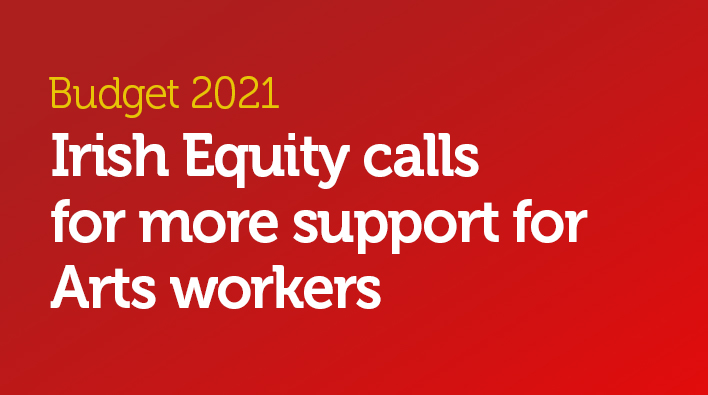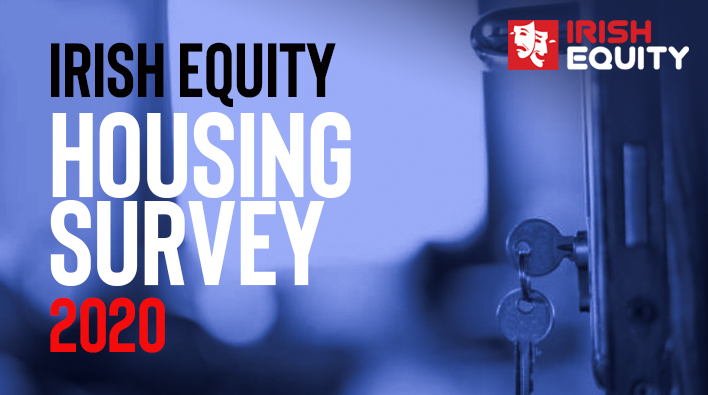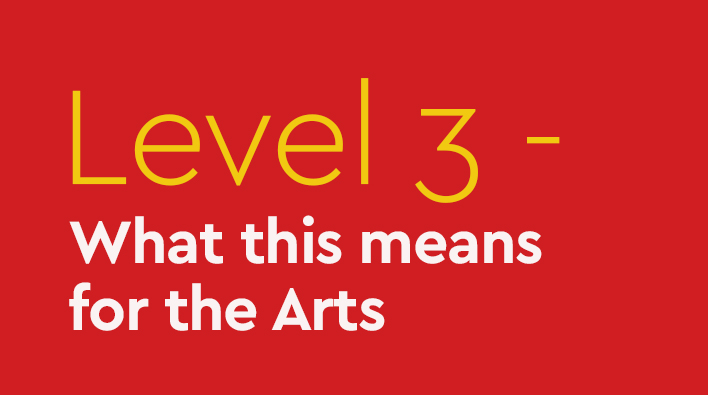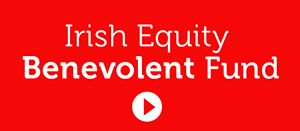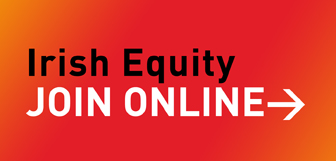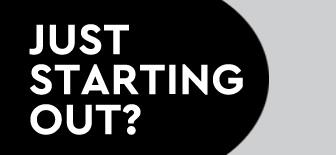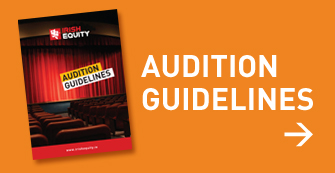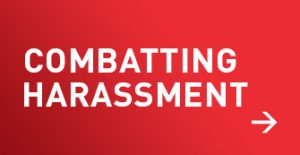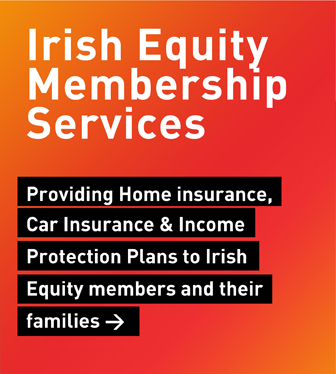Irish Equity are creating a remembrance page to remember and celebrate the lives of deceased members of our profession. We are looking for your help with this. If you have any information which you think might be useful, please email us at irishequity2020@gmail.com
Archives for October 2020
Budget 2021 and the Arts
See relevant information here:
Pandemic Unemployment Payment (PUP)
The new weekly payment structure is as below:
- for individuals who earn €400 and over- the rate of payment is €350
- for individuals who earn between €300 and €399.99 per week – the rate of payment is €300
- for individuals who earn between €200 and €299.99 per week – the rate of payment is €250
- for individuals who earn less than €200 per week – the rate of payment is €203
More information on the PUP can be found here.
Christmas Bonus
A Christmas Bonus of 100% will be paid in early December 2020 to people getting a long-term social welfare payment (minimum payment €20).
The bonus will also be paid to people getting PUP and jobseeker’s payments for at least 4 months.
Update to Employment Wage Subsidy Scheme (EWSS)
Changes to the Employment Wage Subsidy Scheme were announced last night. The new weekly payment structure is below.
- for individuals earning between 0 and €151- no subsidy €0
- for individuals earning >€151 < €203 – the rate of payment is €203
- for individuals earning >€203 < €300 – the rate of payment is €250
- for individuals earning >€300 < €400 – the rate of payment €300
- for individuals earning >€400< €1,462- the rate of payment is €350
We are awaiting Revenue’s update publication on the scheme, pending that more detail can be found here.
Debt warehousing for self-assessed taxpayers
The tax debt warehousing scheme will be extended to taxpayers who self-assess for income tax that are adversely impacted by Covid-19. Impacted taxpayers who cannot pay their 2019 balance and preliminary tax for 2020 can defer payment for 12 months. If income for 2021 is also at least 25% lower than income for 2019, the balance of 2020 balance and 2021 Preliminary Tax can also be warehoused. Debts that are warehoused are subject to 0% interest for 12 months. After this 12-month period, a reduced interest rate of 3% per annum will apply and no surcharge will apply. More information can be found here https://www.revenue.ie/en/tax-professionals/ebrief/2020/no-1902020.aspx
https://www.revenue.ie/en/tax-professionals/ebrief/2020/no-1902020.aspx
Income Tax
There are no changes to the standard or higher rate income tax bands.
The Earned Income Tax Credit for the self-employed will increase from €1,500 to €1,650. This increase will also be applied for the 2020 tax year.
The Dependent Relative Tax Credit will increase from €70 to €245.
Universal Social Charge (USC)
The ceiling of the 2% band will increase from €20,484 to €20,687, so that the salary of a full-time worker on the minimum wage will remain outside the higher rates of USC.
The weekly income threshold for the higher rate of employer’s PRSI will increase from €394 to €398 to ensure that there is no incentive to reduce the working hours for a full-time employee on the increased minimum wage.
Medical card holders will continue to pay a reduced rate of USC until the end of December 2021.
Payments to families
The weekly rate for a qualified child will increase by €2 from €36 to €38 for children under 12 years of age. It will increase by €5 from €40 to €45 for children aged 12 years and over (from January 2021). - The One-Parent Family Payment earnings threshold of €425 will be removed (from April 2021).
- Working Family Payment income thresholds will increase by €10 per week for families with up to 3 children (from January 2021).
- Parent’s Benefit will be extended by 3 weeks from 2 weeks to 5 weeks for parents of children born or adopted from November 2019. The period it can be taken will be extended up to your child’s second birthday or within 2 years following adoption (from April 2021).
- The Widowed or Surviving Civil Partner Grant will increase by €2,000 from €6,000 to €8,000 (from January 2021).
- Disability and illness payments
The number of waiting days for Illness Benefit will be reduced from 6 days to 3 days on new claims (from the end of February 2021).
The earnings disregard for Disability Allowance will increase by €20 per week from €120 to €140 per week (from June 2021).
A grant of up to €500 to buy hearing aids and up to €100 towards repairs will be provided under the Treatment Benefit Scheme without requiring a matching payment by the claimant (from April 2021).
State pension age
The qualifying age for a State pension will continue to be 66. Legislation will be introduced later in 2020 to reverse the increase in pension age to 67 currently included in social welfare legislation.
Fuel Allowance
The Fuel Allowance will increase by €3.50 per week from €24.50 to €28 (from January 2021).
Living Alone Increase
The Living Alone Increase will increase by €5 per week from €14 to €19 (from January 2021).
Increase for living on a specified island
The Increase for living on a specified island will increase by €7.30 from €12.70 to €20 per week (from January 2021).
Carers
The Carer’s Support Grant will increase by €150 from €1,700 to €1,850 per year (from June 2021)
COVID-19 Business supports
The Employment Wage Subsidy Scheme will continue until 31 March 2021. Supports under a similar scheme are likely to continue from 1 April 2021. The Government has applied to the EU SURE fund (the European Instrument for Temporary Support to Mitigate Unemployment Risks) for additional funding. This fund is part of the European response to help protect jobs and workers affected by COVID-19.
Any employer who received excess amounts of the Temporary Wage Subsidy Scheme must refund the overpayment to Revenue. An employer may be unable to repay the overpayment immediately, due to the impact of Covid-19 on their business, and the existing tax debt warehousing scheme will be expanded to include these repayments.
The Covid Enterprise Support Grant payments have been extended until 31 March 2021. The grant is worth up to €1,000 and is aimed at sole traders who got the Government’s Restart Grant Plus.
The waiving of commercial rates due to local authorities has been extended until the end of 2020 to support businesses impacted by COVID-19.
Other COVID-19 supports include: - €39 million in continued access to low cost loans for business
- €30 million for applied research in the pharmaceutical and healthcare industry
- €10 million to help businesses move online with the Online Retail Scheme
COVID Restrictions Support Scheme (CRSS)
A new COVID Restrictions Support Scheme (CRSS) has been set up, aimed at businesses impacted by Covid-19 restrictions.
Qualifying businesses can apply to Revenue for a cash payment. The maximum weekly payment will be €5,000. The scheme is aimed at those in the accommodation, food and arts, recreation and entertainment sectors. If the Government decides to move to a higher level of restrictions then other sectors may qualify.
The scheme will run from 13 October 2020 until 31 March 2021.
The following measures will apply: - Payments will be made when Level 3 restrictions or higher are in place in line with the Plan for Living with COVID-19
- Businesses will qualify where government restrictions directly prohibit or restrict customer access to their premises
- Payments will be calculated on the basis of 10% of the first €1 million in turnover and 5% thereafter, based on average VAT exclusive turnover for 2019
- A self- assessment of 80% disruption in turnover will be required
Irish Equity calls for more support for Arts workers
Irish Equity has said that Budget 2021 does not provide enough support for artists, theatre and entertainment workers.
Karan O Loughlin, Irish Equity Organiser, said: “While the announcement by Arts minister, Catherine Martin, of critical investment in the Arts is broadly welcome, there is not enough focus on retaining artists and arts workers in the sector.
“Artists and workers are being prevented from working because of the restrictions on gatherings and they need urgent and ongoing financial support. With the Arts, Culture and Entertainment expected to be hit harder by job losses than any other sector of the economy, funding must targeted towards those artists and creatives who are most exposed.
“Irish Equity seeks to ensure that the funding announced in the budget promptly and directly benefits our members including actors, directors and theatre makers, dancers, designers, stage managers and other creatives. These people are the backbone of the creative industry. We also want to see funding channelled into building sustainability in the Arts.
“For Irish Equity representatives, negotiations on better pay and conditions are just one feature of our work and we also campaign for a sustainable environment for workers. Being a member of the union is even more important for those employed in the Arts and Entertainment as this public health crisis continues.”
Karan O’Loughlin was speaking at the release of a promotional video created by Irish Equity and highlighting the importance of the work done by the union on behalf of its members.
The video features some of Ireland’s finest acting talent, discussing why membership of Irish Equity is important and the protections it offers them in the frequently precarious freelance world. It also demonstrates the rich and rapidly growing diversity among the membership of Irish Equity.
Irish Equity Housing Survey
As the Covid-19 pandemic continues to cause utter devastation right across the Arts, more and more performers, theatre makers and practitioners, musicians, entertainers, events and other workers are continuing to feel the financial strain of not being able to meet their obligations and in particular, their rent.
In the link below, we have created a short survey to gather information to make the case for specific rent supports for your sector as it was the first to shut down and will in all likelihood be the last to reopen. We have harrowing testimonials from some artists about their accommodation situation before this pandemic but the shut sown of the sector has further exacerbated their situation.
If you are in a rented property please take a few minutes to click on the link (its also phone friendly) and share it with other artists and arts workers.
Level 3 – What this means for the Arts
The Government Roadmap Resilience and Recovery 2020-2021: Plan for Living with COVID-19 can be found here https://www.gov.ie/en/campaigns/resilience-recovery-2020-2021-plan-for-living-with-covid-19/?referrer=http://www.gov.ie/roadmap/
What does the Government Roadmap mean for the Arts on level 3
Organised indoor gatherings – These are controlled environments with a named event organiser, owner or manager. For example: business, training events, conferences, events in theatres and cinemas or other arts events (excluding sport). Under level 3 – No organised indoor gatherings should take place.
Organised outdoor gatherings – These are controlled environments with a named event organiser, owner or manager. For example: outdoor arts events, training events. Under level 3 – Gatherings of up to 15 people can take place.
Museums, galleries and other cultural attractions – Under level 3 – All venues closed. Libraries will be available for e-services and call and collect.
Bars, cafes and restaurants (including hotel restaurants and bars):- Under level 3 – These venues may remain open for take-away and delivery and outdoor dining or service to an absolute maximum of 15 people except Dublin where wet pubs in Dublin are to remain closed. All Nightclubs, discos and casinos will remain closed.

